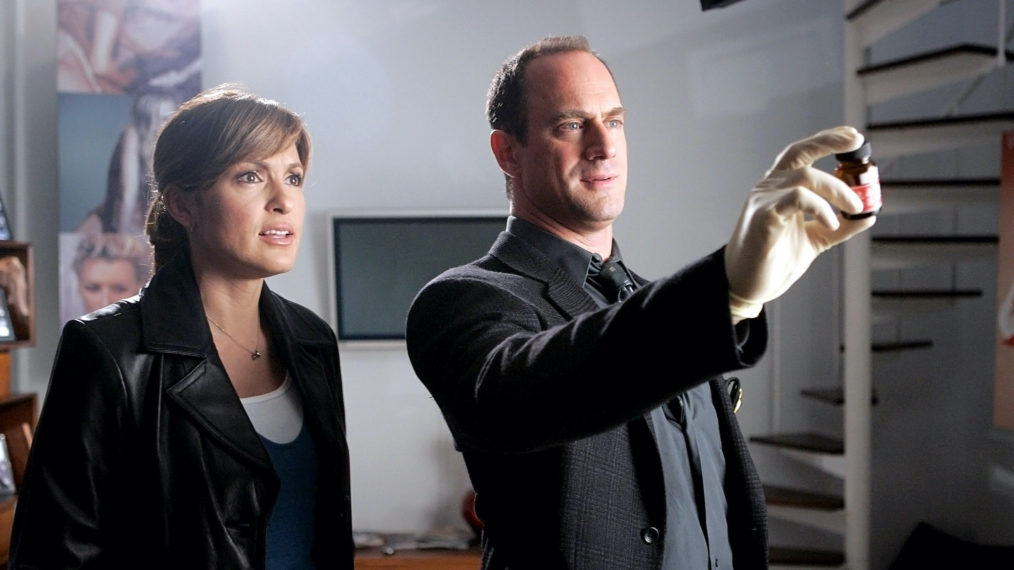#“Dear Remy”: Hollywood Career Coach Gives Advice to a Grieving Actor and an Exec in Script Storm

Table of Contents
My Character Was Killed Off. Is My Career Dead?
Dear Remy,
I always knew my character would be killed off.
When I took on the role of patriarch in a prestige drama series, the production company was very clear that the man I would be playing had an expiry date. I thought nothing of it at the time—reflecting instead on how well the producers communicated. Colleagues of mine have been informed of the death of their characters by reading about it in the sides that script runners brought to their trailers. At least I didn’t discover the person I was playing would meet a grisly end in front of an acne-ridden film school graduate who’s been consistently getting my coffee order wrong.
So it took me by surprise when we filmed my final scenes for the show, and I felt grief. I know it makes no sense. But when I was invited to the edit to watch my final episode, I can only describe it as like an out-of-body experience. Except instead of hovering above myself a la Patrick Swayze in Ghost, I was in a cushy viewing suite in West Hollywood confronted with my post-mortem face in 4k.
To make matters worse, I am often approached by fans who seem surprised to discover me alive. “I thought you were dead!” they’ll exclaim, or suggest I am ‘back from the grave.’ One person even asked me if they could dress up as a reanimated zombie version of my character for Halloween. I know it is all meant in jest, but the jokes leave me unsettled.
Remy—am I just a narcissist, or is there something more at play here? I am over 70 now with more wrinkles than when I signed on to this job. I need to focus on finding the next role—not grieving the last!
Sincerely,
Death Benumbs Him
Dear Death Benumbs Him,
It would be normal for any actor to experience a sense of loss as one role comes to a very definitive end. But a full existential crisis (the likes of which you appear to be having) is something else.
Perhaps the clue to what’s really going on here is in your final sentence. Few roles are written for actors in their 70s. Is it that you are grieving your past, and, in very practical terms, worried for the future?
The average life expectancy in the U.S. is 76 for men and 81 for women. Yet we love to pretend that death is something that only happens to other people. And we’ll get to hear about it in the ‘In Memoriam’ section of the next awards ceremony as a choral version of a Billie Eilish song plays.
On the other hand, the fact that a human life is roughly 1,000 months is something we forget. Why not imagine that you’re 95 years old, sitting in a beautiful spot. You feel like your life has been a success. What was the one thing that you accomplished that allows you to think this? The answer to this question is your true goal.
And when the next person comes up to you telling you they ‘thought you were dead,’ why not play along? How incredible would it be if you were back from the dead—having another chance at a life that you thought had been cut short? Contemplate yourself with the sort of wonder that would allow—wrinkles and all.

Will My Niceness Sink My Hollywood Career?
Dear Remy,
Is it possible to be too nice in Hollywood?
I am a development exec at a studio specializing in serialized drama. Just lately, an increasing amount of my time is spent reading unsolicited scripts from friends, friends-of-friends, and even friends-of-moms-of-pastors-of-friends-of-cats-of-neighbors-of-friends.
It seems like everyone fancies themselves a writer and is convinced their one idea is going to be the one to make Hollywood’s collective jaws drop. I think I have heard every iteration of an apocalypse plot (including one where Patient Zero was a WWE wrestler and another set aboard a fleet of jet skis), and don’t get me started on people who think they are the new M. Night Shyamalan!
But for all my might, I cannot find a way to be honest with folks. I spend hours going back and forth with wannabe writers giving feedback on their romance movie—the one they think is the new ‘Notebook’ but wouldn’t stand up on the Hallmark channel. The company CEO is getting impatient with me. That being said, he also asked me the other day if I’d look at his niece’s war epic.
I feel like a script Jedi—fending off pages from all angles. I’ve been saying yes to people for so long, how can I turn things around?
From,
Life’s a Pitch
Dear Life’s a Pitch,
You’ve raised a fundamental question that many in Hollywood grapple with: can you be too nice in an industry that often rewards the opposite?
The reason everyone comes to your door is because you’ve made yourself approachable and welcoming — qualities that are admirable but make it hard to set boundaries. Remember, you’re not Betty Crocker, and you can’t possibly cater to everyone who shows up.
Here’s some practical advice on how to manage your priorities better:
1. Set Clear Boundaries: Politely but firmly let people know that your primary focus must be on your current projects. Create a standard response for unsolicited scripts.
2. Prioritize Your Work: Your job is at risk if you don’t focus on your main responsibilities. Allocate specific times to review scripts from acquaintances.
3. Communicate Honestly: Start being honest about the quality of the scripts you receive. It’s kinder in the long run to give constructive feedback rather than false hope.
4. Limit Access: Politely decline requests that are outside your capacity. You can humorously suggest they work directly with M. Night Shyamalan if they’re convinced they have the next big twist!
Hollywood isn’t always the friendliest place, but having an element of kindness isn’t a bad thing. Just ensure it’s balanced with assertiveness to protect your time and energy.
Keep your kindness, but wield it wisely. You’re doing the industry a favor by filtering out what doesn’t work and focusing on what does.
Your ally in script selection,
Remy
My Filtered Photo Fiasco
Dear Remy,
I am being lambasted by the press on both sides of the Atlantic—just for editing a photo of myself.
When I married into a famous family, I was wholly prepared to have my life put on display for public consumption. I viewed it as a contract—I would be looked after, and in return, the masses would own me.
But recently, I had to take a few months’ rest following a medical procedure (nothing serious. On a scale of bunion removal to heart bypass, it was closer to bunion removal).
Rather than let me disappear from view, my publicist insisted on my sharing a casual selfie during my recovery. I wasn’t looking my best, so I used the ‘Princess AI’ filter and lickety-split, uploaded the photo.
All hell broke loose. Spools of unsupportive comments leaked across my page. I was called ‘trout lips’ and ‘Botox Betty,’ and one netizen said she had seen better wax creations in Yankee Candle. What’s worse: multiple articles have arisen, linking my public profile to the rise of body dysmorphia in teens.
The one and only time I was papped without makeup at my local grocery store, a few years back, everyone said I must be ‘doing a Britney circa 2008’… now I use a filter, they’re saying I’m inauthentic.
Dear Remy, I’m questioning my own sanity. Is this my problem, an industry problem, or a societal problem?
Sincerely,
Filter Face
Dear Filter Face,
What a whirlwind you’re caught in! First, let me assure you, the idea that one has to look flawless to be valued is not exclusive to Hollywood—it’s a universal struggle. From schmaltzy movies with grease on the camera lens (the ‘original’ filter), to today’s influencers with teams swiping away blemishes like flies, we’ve all been sold on immaculate looks being the norm.
It’s no wonder then that your filtered photo has stirred such a reaction. In reality, your face has become a canvas for society’s unprocessed fears—our anxieties about being “good enough,” aging, and retaining worth. When it’s as easy to filter our faces as it is to switch on the oven (though I advise against confusing the two), the lines between authenticity and artifice blur.
As for the body dysmorphia concerns, it’s crucial to acknowledge the impact that media can have on impressionable minds. By being transparent about the use of filters, you can counterbalance some of the negative effects. Encourage your followers to embrace their natural selves and seek support if they struggle with body image issues.
Your friend in the fickle field of fame,
Remy
***
Remy Blumenfeld is a veteran TV producer and founder of Vitality Guru, which offers business and career coaching to high performers in media. Send queries to: [email protected].
Questions edited by Sarah Mills.
If you liked the article, do not forget to share it with your friends. Follow us on Google News too, click on the star and choose us from your favorites.
If you want to read more Like this articles, you can visit our Social Media category.




